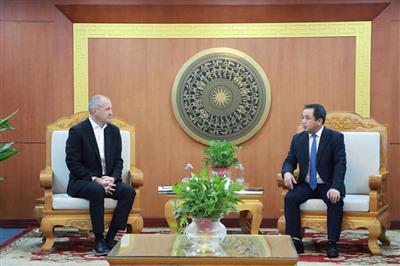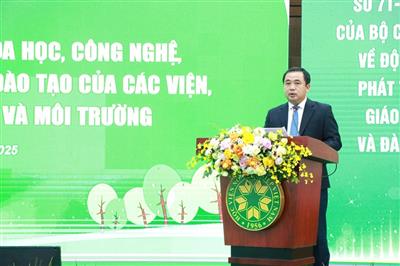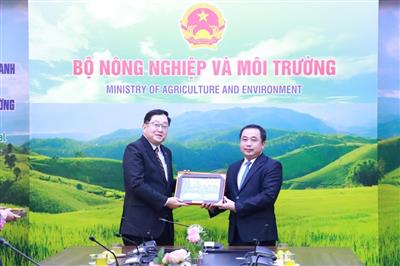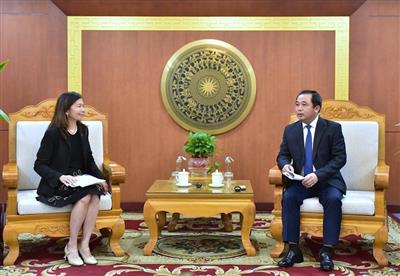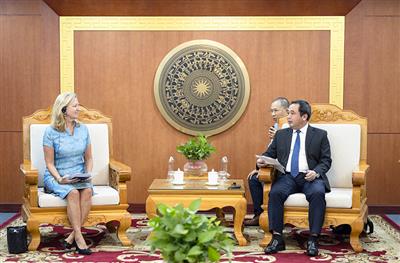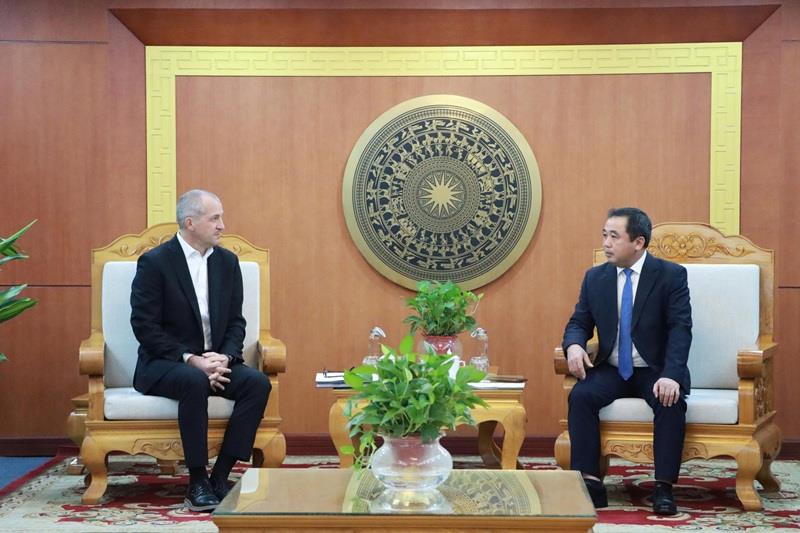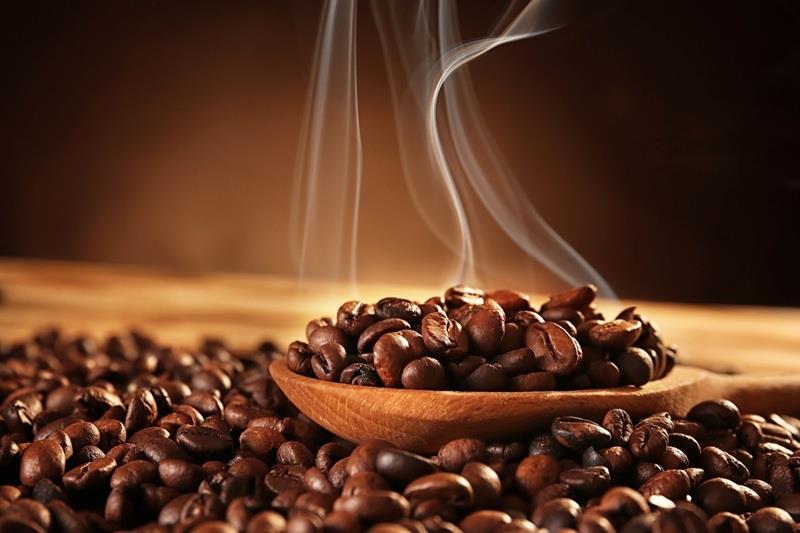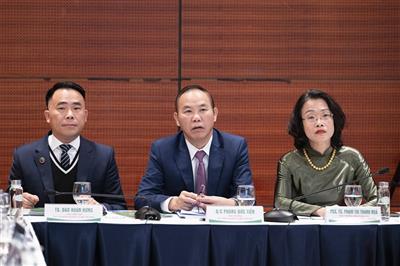
Vietnam - Japan aim for green, sustainable, and globally integrated agriculture
04/09/2025TN&MTOn September 4 in Tokyo, the sixth Vietnam - Japan high-level agricultural cooperation dialogue took place, marking an important milestone in bilateral cooperation. During the event, both sides approved the Phase 3 medium-long term vision for agricultural cooperation, which sets directions for green development, digitalization, and climate adaptation in the coming years. At the same time, the Vietnam-Japan Public-Private Agricultural Dialogue Forum witnessed the signing of ten memoranda of understanding (MoUs) between businesses from both countries, moving from policy strategy to concrete action and opening prospects for practical and sustainable cooperation.
For more than half a century, agricultural cooperation has been a cornerstone of Vietnam–Japan relations. Japan has been not only a leading trade partner but also a provider of capital, technology, and management expertise to Vietnam’s agricultural sector. Conversely, Vietnam has increasingly become a strategic partner in ensuring a stable, diverse supply of food that meets high standards of quality, safety, and sustainability. Nearly two years ago, the upgrade of bilateral relations to a “Comprehensive Strategic Partnership for Peace and Prosperity in Asia” provided a political foundation for reaffirming commitments to green and sustainable agricultural cooperation.
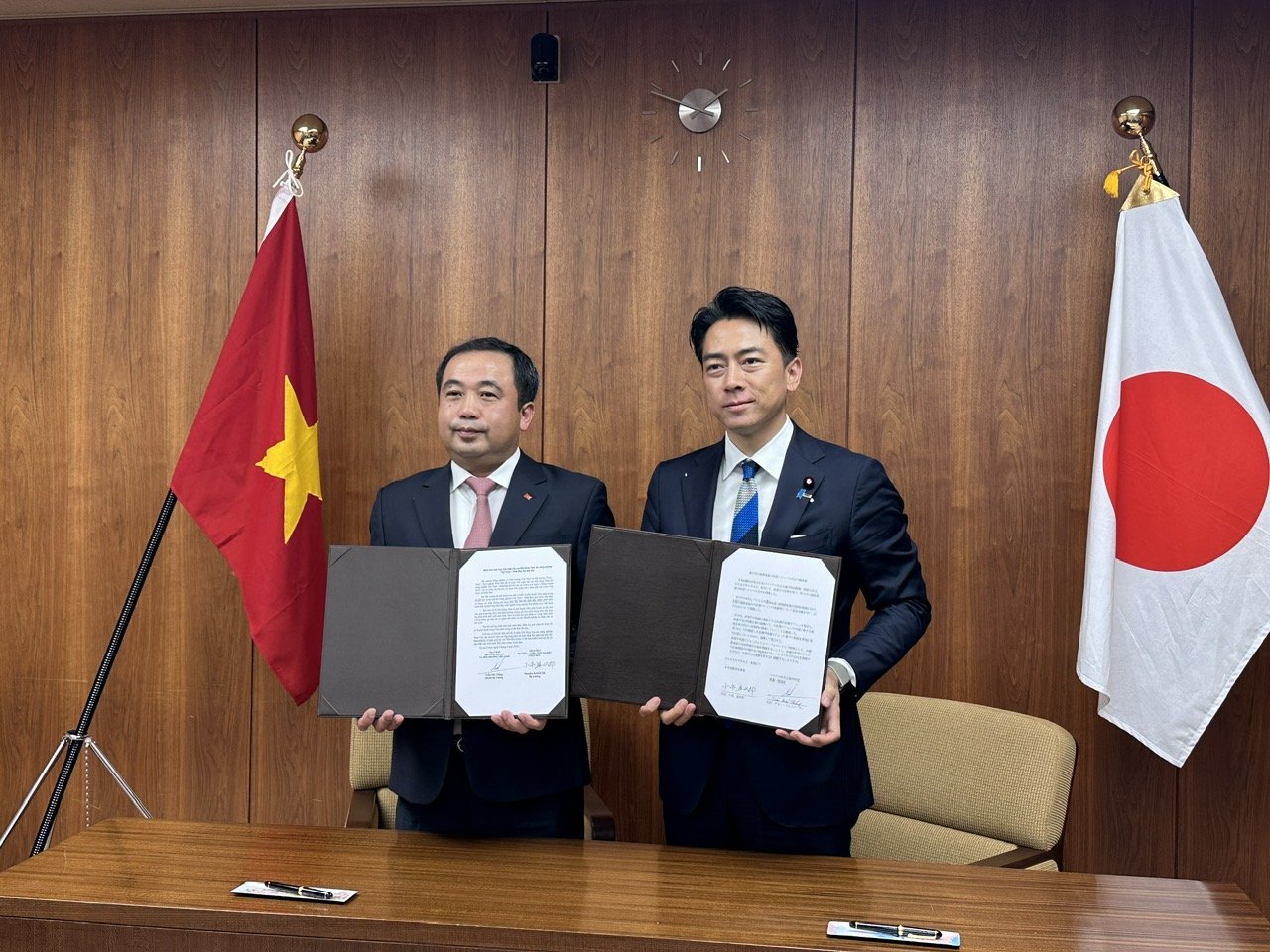
Acting Minister Tran Duc Thang and Minister Koizumi approved the medium- to long-term vision for Vietnam–Japan agricultural cooperation (Phase 3) (Photo: ICD)
In his opening remarks, Acting Minister Tran Duc Thang emphasized that Japan is an important strategic partner, supporting Vietnam not only with capital and technology but also by sharing management experience and effective public–private partnership models. He highlighted that programs under the Medium–Long Term Vision have laid the groundwork for Vietnam’s agricultural value chains, helping improve product quality, expand export markets, and gradually move toward green and sustainable objectives.
From Japan’s side, Minister Koizumi Shinjiro appreciated the strong cooperation between the two countries and expressed his desire to further deepen collaboration in agriculture. He invited Vietnam to participate in the Green EXPO Yokohama 2027 and emphasized Japan’s willingness to open its markets to certain agricultural and seafood products, including grapes and fugu (pufferfish).
Medium–long term cooperation vision: Toward green, sustainable, and smart agriculture
At the conference, the two sides established the Phase 3 medium–long term vision for Vietnam–Japan agricultural cooperation, starting in 2025. This vision builds on achievements from Phases 1 (2015–2019) and 2 (2020–2024) while introducing new measures to promote green, sustainable, and high-tech agriculture. Acting Minister Tran Duc Thang stressed that Phase 3 focuses on developing agricultural value chains, improving product quality, expanding export markets, and strengthening science–technology cooperation. Vietnam seeks collaboration with Japan in crop research, biotechnology, post-harvest preservation, and the transfer of modern technologies such as IoT, artificial intelligence (AI), and blockchain. He affirmed that public–private cooperation between the two countries will be actively promoted, creating opportunities for businesses, associations, and cooperatives to directly implement, innovate, and lead the market.
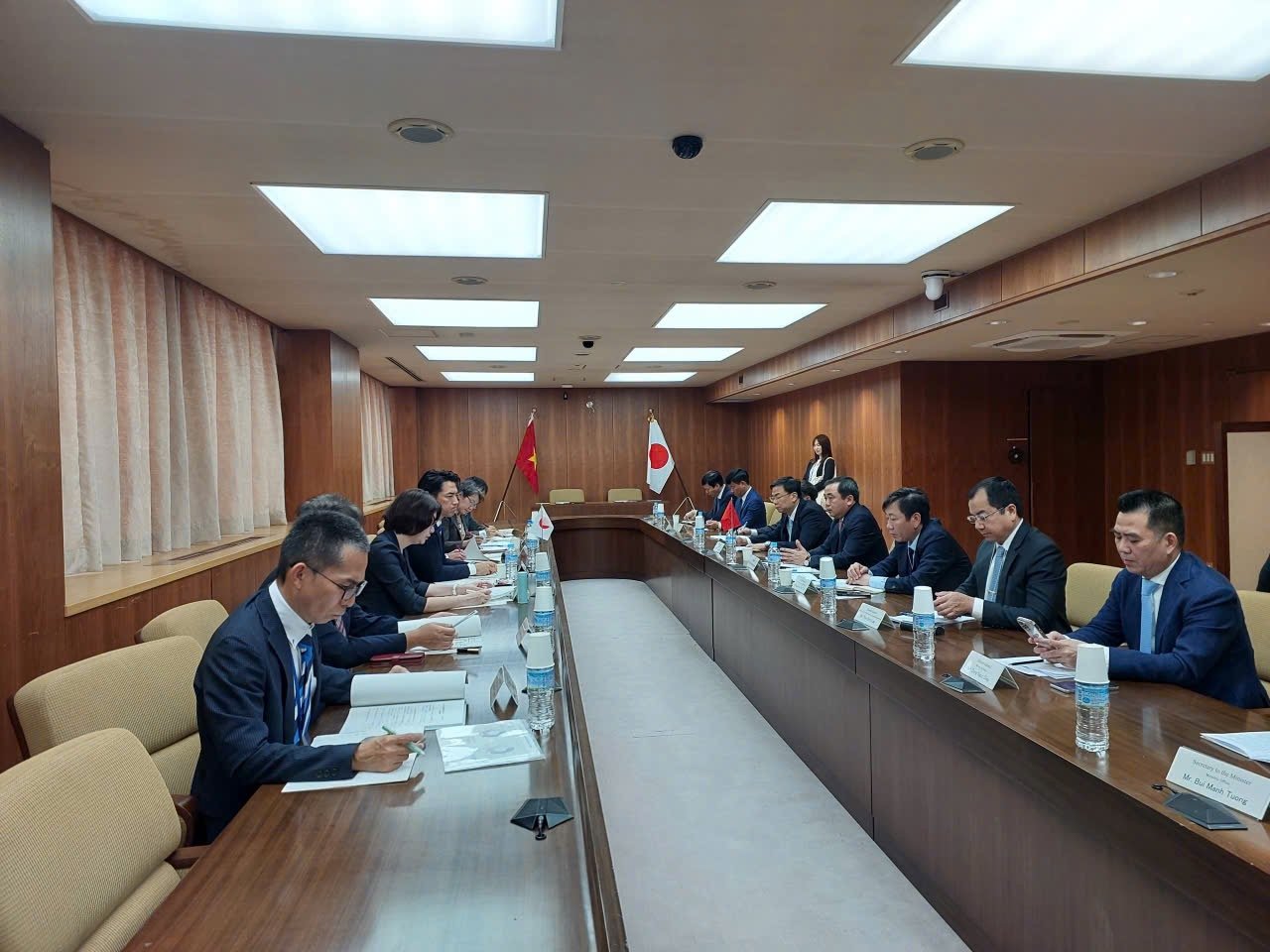
The 6th Vietnam–Japan high-level dialogue on agricultural cooperation (Photo: ICD)
Within this vision, priority is given to green and circular agriculture. Sustainable farming models and the application of biostimulants—biological compounds that support plant growth—are being implemented to reduce greenhouse gas emissions, protect biodiversity, enrich soil, and increase productivity. The joint field trial by PAN Group, AGRI SMILE, and the Mitsubishi Research Institute is a clear example of how green technologies are applied in practice to promote sustainable farming practices.
Phase 3 also emphasizes the development of sustainable supply chains and smart logistics, ensuring Vietnamese agricultural products meet international standards for food safety, traceability, and sustainability. Both sides encourage business linkages between Vietnamese and Japanese companies in production, processing, distribution, and the development of new products. A notable example is the collaboration between Hung Nhon Group and Japanese companies in exporting meat, eggs, and processed livestock products.
Minister Koizumi highlighted Japan’s environmentally friendly technologies and noted that they could be widely applied in Vietnam and other countries in the Asian monsoon region. He emphasized that public–private cooperation between the two nations has created valuable models, serving as a benchmark for ASEAN and the world, while also fostering deeper exchanges and new business opportunities.
Phase 3 also aims to strengthen competitiveness, increase value-added in agricultural products, and ensure regional food security. Strategic cooperation programs focus on human resource development, building new-style cooperatives, promoting innovation, and applying circular economy models in agriculture. The adoption of high-tech solutions—from smart logistics systems and cold chains to IoT, AI, and blockchain—is a key step in enhancing management capacity, traceability, and product value.
Overall, the medium–long term vision represents not only a political and economic commitment but also a guiding framework for developing sustainable, green, and smart agriculture that integrates internationally. It provides a foundation for businesses, cooperatives, and farmers in both countries to build high-quality, environmentally friendly agricultural value chains that deliver long-term benefits.
Signing 10 Memoranda of Understanding: Promoting public–private cooperation
Within the Public–Private Dialogue Forum, 10 MoUs on business, trade, and investment were signed between Vietnamese and Japanese companies, witnessed by Acting Minister Tran Duc Thang and Minister Koizumi Shinjiro. The event demonstrated a strong commitment from both countries to promote agricultural cooperation and highlighted the central role of the private sector in developing sustainable value chains.
The MoUs cover key areas including processing, distribution, market research, biotechnology, quality management, and value chain development. Notable initiatives include: the Department of Cooperative Economy – Ministry of Agriculture and Environment partnering with Sorimachi Company to develop integrated agricultural and aquaculture production models; collaboration between the Sustainable Development Partnership (PSAV), the Department of Cooperative Economy, and MUFG Bank – VietinBank to provide financial support for green agriculture projects; the National Agricultural Extension Center, Dong Giao Company (Doveco), and AEON Top Value expanding Vietnamese agricultural exports to Japan while establishing transparent traceability systems; and PAN Group, AGRI SMILE, and Mitsubishi Research Institute conducting field trials using biostimulants to improve productivity, reduce emissions, and protect biodiversity.
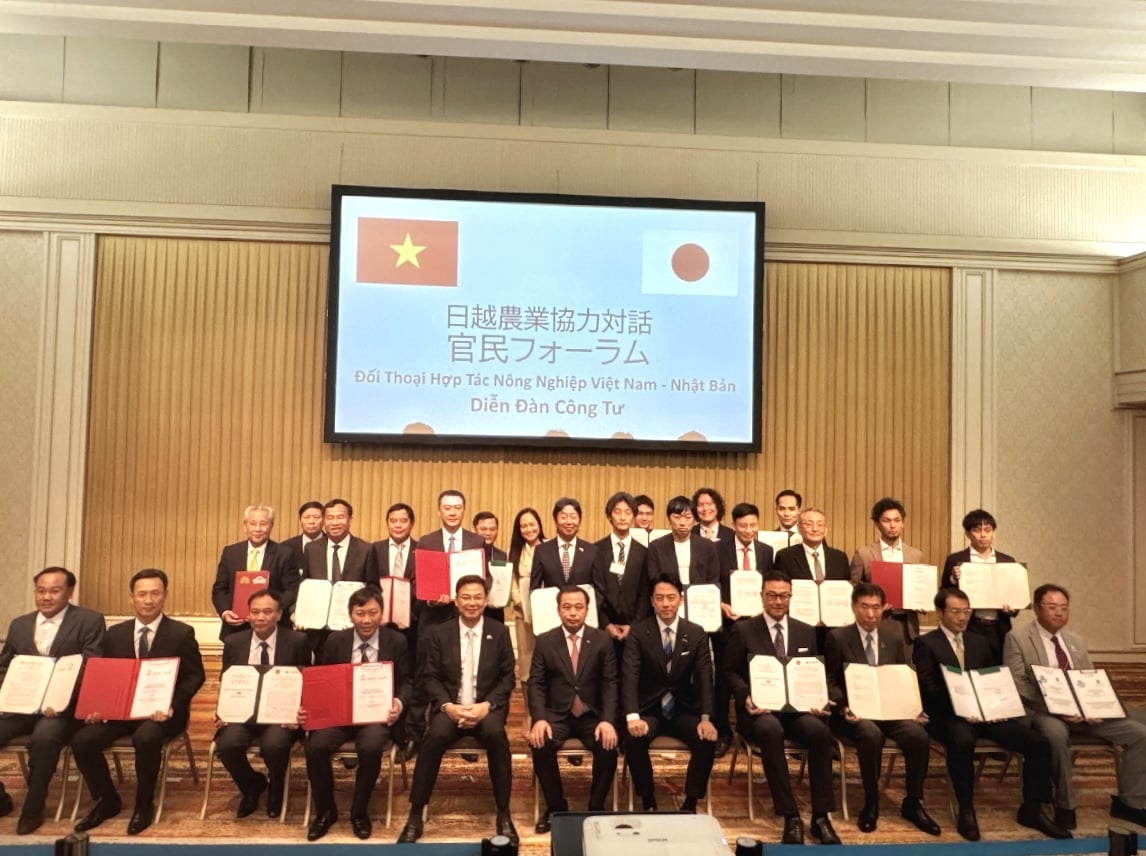
Ten memoranda of understanding on cooperation were announced at the forum (Photo: PAN Group)
Acting Minister Tran Duc Thang emphasized the critical role of private sector participation, while Minister Koizumi noted that Japan’s environmentally friendly technologies and green agriculture practices could be applied in Vietnam and the broader region, creating exemplary value models for ASEAN and the world. The MoUs not only promote investment and trade but also focus on applying advanced technologies—from biostimulants and agricultural by-product processing to cold chains and smart logistics—enhancing productivity, quality, and value-added.
Technology cooperation and knowledge transfer
Technology cooperation is a key focus of the MoUs, aimed at reducing greenhouse gas emissions, increasing productivity, and promoting sustainable agriculture. PAN Group signed an agreement with AGRI SMILE and Mitsubishi Research Institute to conduct rice field trials assessing nutrient absorption and climate resilience of biostimulant products.
Nguyen Thi Tra My, CEO of PAN Group, emphasized that biostimulants help Vietnamese agricultural products meet strict standards for food safety, chemical residues, and sustainability while enhancing resistance to drought, salinity, and high temperatures. Biostimulants, typically derived from natural sources or recycled agricultural by-products, improve plant health and resilience, reduce chemical use, and promote green and circular farming practices.
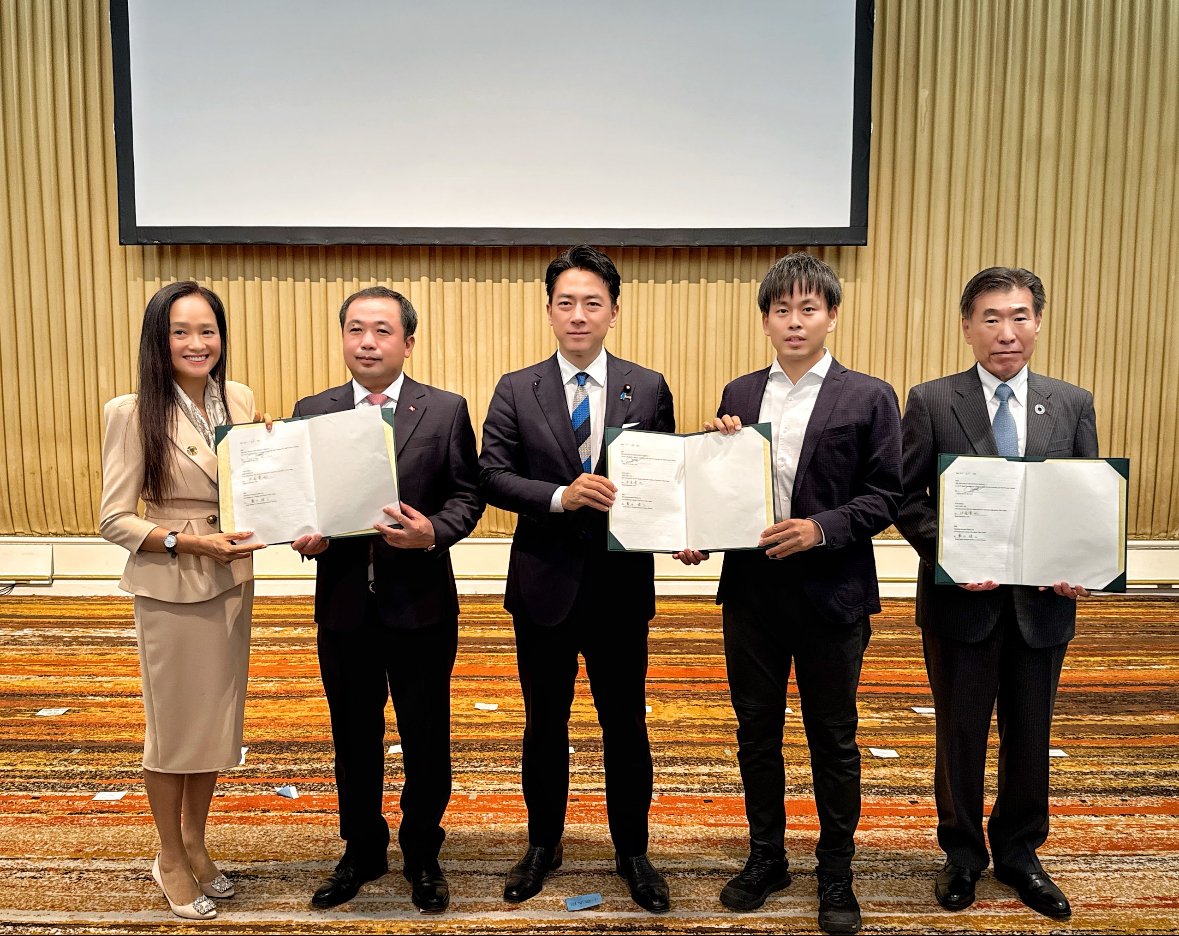
Acting Minister of Agriculture and Environment Tran Duc Thang and Mr. Koizumi Shinjiro, Minister of Agriculture, Forestry and Fisheries of Japan, witnessed the signing of a memorandum of understanding between PAN Group, AGRI SMILE, and the Mitsubishi Research Institute. (Photo: PAN Group)
Vietnamese businesses are also collaborating with Japanese partners on IoT, AI, and blockchain applications for production management, traceability, and smart supply chains, ensuring food safety, increasing export value, and targeting the Japanese market. Minister Koizumi highlighted that these technologies could be widely applied across the Asian monsoon region, while Acting Minister Tran Duc Thang stressed the private sector’s crucial role in driving innovation and technology transfer.
According to PAN Group, in 2024, consolidated revenue reached 16,182 billion VND (~650 million USD), with exports to Japan totaling nearly 100 million USD, accounting for about 33% of total exports, underscoring the direct impact of advanced technology on the competitiveness of Vietnamese agricultural products.
Prospects and challenges
The conference also focused on promoting trade in agricultural, forestry, and seafood products between the two countries. Trade in agricultural products increased from 3.02 billion USD in 2015 to 4.9 billion USD in 2024, an average annual growth of around 6%. Free trade agreements such as VJEPA, CPTPP, and RCEP have provided a framework to diversify goods, expand markets, and strengthen value chain linkages.
Dr. Dinh Cao Khue, Chairman of Doveco, stressed the importance of linking businesses from both countries to expand markets and contribute to sustainable development of Vietnam–Japan agriculture. Vu Manh Hung, CEO of Hung Nhon Group, proposed expert and agricultural engineer exchange programs, alongside the application of biotechnology, automation, and digitalization to enhance management capacity and ensure food safety.
Japanese companies also highlighted potential cooperation in coffee, livestock, and organic fertilizers. Yuto Koga of Kanematsu pointed to coffee as a promising sector, while Takeshi Ono of Chubu Ecotec stressed the importance of public–private alignment to develop sustainable value chains.
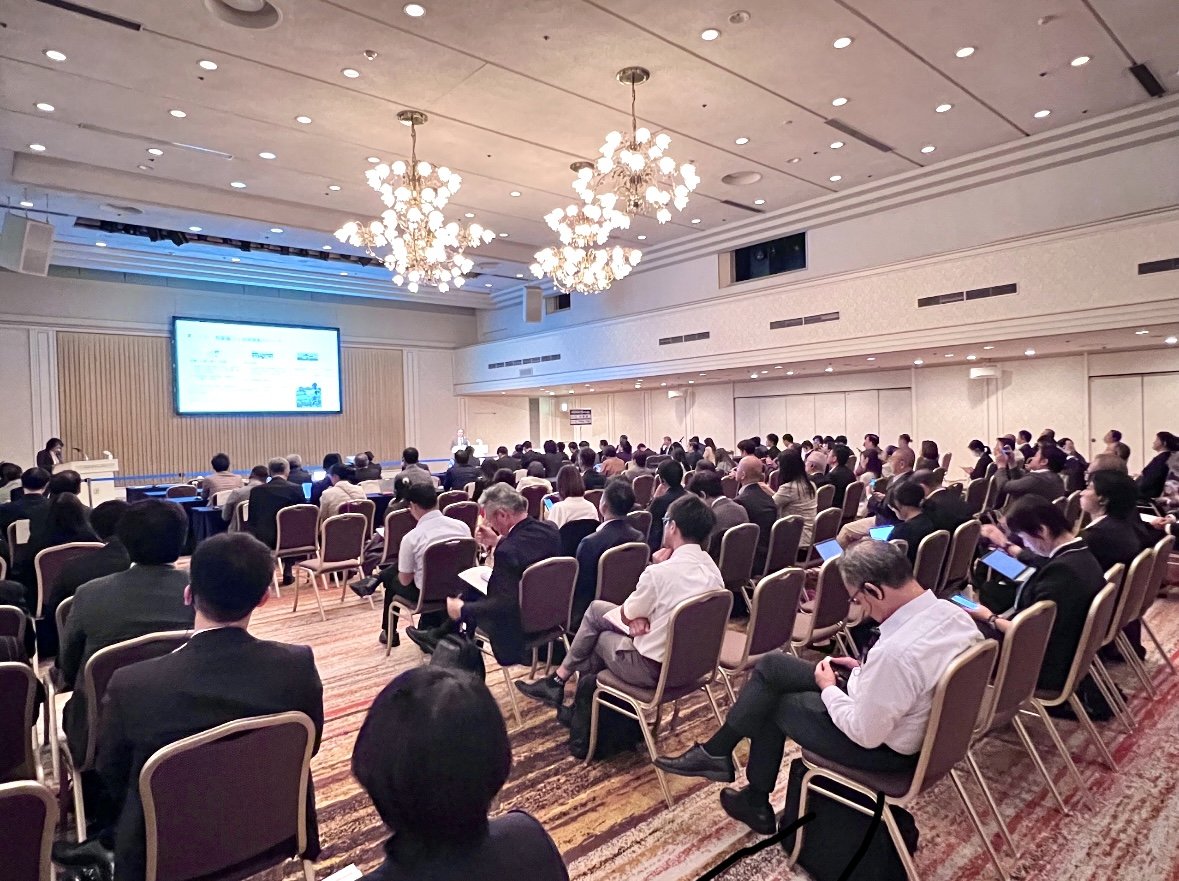
View of the Vietnam–Japan public–private cooperation forum on the afternoon of September 4 (Photo: PAN Group)
Acting Minister Tran Duc Thang reaffirmed that Vietnam encourages Japanese businesses to invest in deep processing and sustainable value chain development, enhancing global competitiveness of agricultural products while meeting traceability, animal welfare, and sustainability standards. Minister Koizumi Shinjiro emphasized that trade cooperation, particularly in green agriculture and high-tech applications, will bring tangible benefits to people and economies in both countries. Green EXPO Yokohama 2027 will offer opportunities to expand markets and learn advanced management practices for high-quality agricultural products.
Overall, Vietnam–Japan cooperation extends beyond product exports to include sustainable supply chain development, quality enhancement, technology application, and trade growth, laying the foundation for a modern, green, and internationally integrated agricultural sector.
Minh Thao


